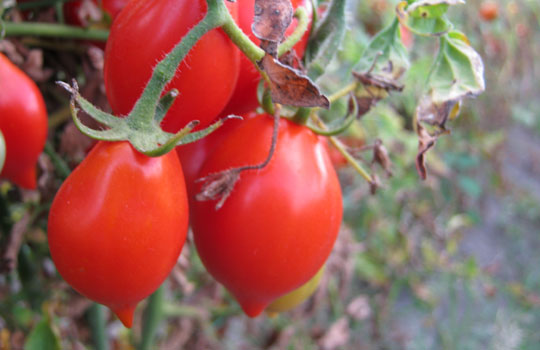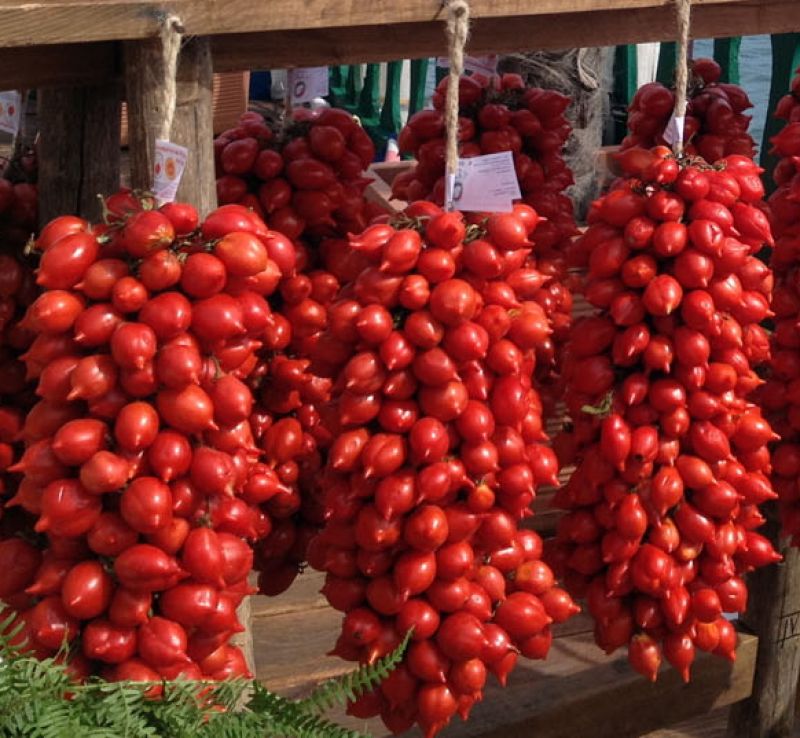
Pomodorino del piennolo
This post is also available in:
 Italiano (Italian)
Italiano (Italian)
Vesuvian cherry tomatoes are one of the most characteristic productions of the vesuvian area, they are also called “spongilli” o “piénnoli” (pendolous) because of the habit of hanging them on ceilings or walls in bunches (schiocche) with hemp laces.
They have an oval, elongated shape similar to a pear or heart, and the apical part (pizzo) is particularly visible. The vesuvian tomatoes can be conserved for a long time thanks to their thick peel.
Bruni writes about their long conservation in his “Degli ortaggi e loro coltivazione presso la città di Napoli” (1858), where it is said that they are tasty cherry tomatoes which remain in an optimal state till Spring, if they are bound in bunches and hanged in attics.
Francesco De Rosa, professor in Portici school, specified in 1902 on “Italia Orticola”, that the old vesuvian “cerasella” had been gradually substituted by the “a fiaschetto” variety, which is more indicated for the conservation of the tomato. De Rosa is also the first researcher who reported exhaustively the entire cultivation technique of the vesuvian tomatoes, implying that a business was developing around the product, from the production of the plant to the selling of the conserved product. They are sown in March-April and mature between July and August, but according to the original conservation process, the tomatoes should be collected in bundles at the beginning of summer in order to hang and conserve them in rooms with adequate temperatures and humidity levels, till Winter time or the next Spring. For this reason, it is possible to season pizzas, fish or pasta dishes of the regional tradition with a tasty “pummarola”.
The price of the product is slightly higher than the one of the other specimens, since its cultivation area in restricted. The soils, in which this variety is cultivated, are the result of millennial lava layering process and are not easy to reach because they are located at high altitudes. Because of this, the tomatoes “a spongillo” are also called “di montagna” in Naples.
This post is also available in:
 Italiano (Italian)
Italiano (Italian)
Contatti
Napoli(NA)


